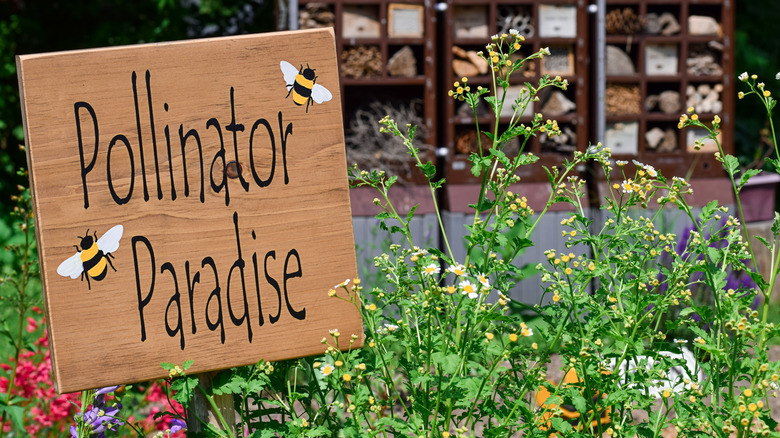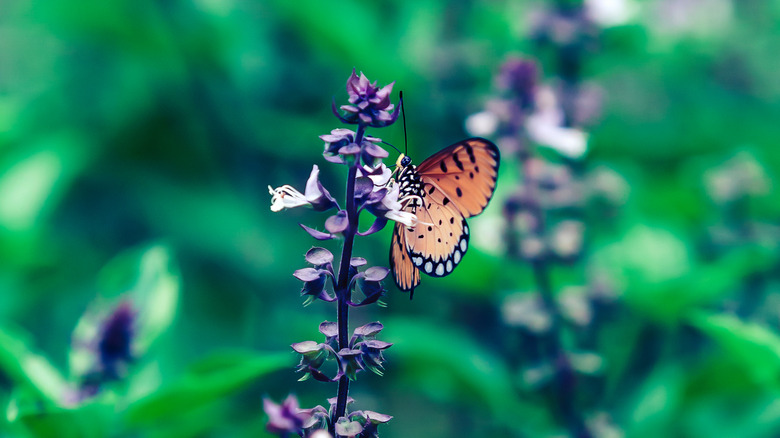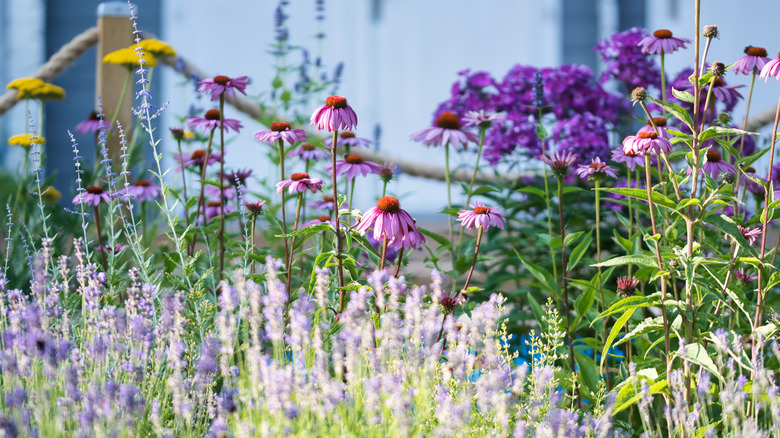Attract Butterflies And Bees With A Pollinator-Magnet Plant That Thrives In Heat
If you want to draw butterflies and bees to your garden while handling the heat of summer, Thai basil (Ocimum basilicum) is a smart choice. This hardy herb thrives in high temperatures and doubles as a culinary favorite, making it a practical and beautiful addition to your landscape. Unlike some herbs that wilt in intense heat, Thai basil flourishes in warm climates, offering both fragrant foliage and edible flowers that pollinators love. Its resilience makes it ideal for gardeners in hot zones who still want a vibrant, pollinator-friendly yard.
Thai basil not only withstands heat but also actively supports local ecosystems. Herbs like basil can be key players in a pollinator garden, thanks to their nectar-rich blooms that attract beneficial insects to your garden. The unique purple stems and delicate flowers of Thai basil make it a favorite for bees and butterflies alike. Adding this herb to your garden plan can support biodiversity and reduce reliance on artificial pollinator attractants.
You'll also appreciate Thai basil's versatility. It works well in raised beds, containers, or tucked into existing vegetable plots alongside tomatoes, peppers, and other heat-loving plants. It's a great way to combine form and function, offering beauty, flavor, and ecological benefits in one tidy package. Whether you're aiming for a patio herb collection or a sprawling pollinator paradise, Thai basil deserves a spot on your planting list.
How to grow Thai basil for pollinators in the heat
Successfully growing Thai basil as a pollinator magnet starts with choosing the right site. This herb is hardy in USDA zones 9 to 10, loves full sun, and needs at least six hours of direct light daily to thrive. Good drainage is equally important, whether you're growing it in the ground, raised beds, or containers. Proper soil preparation and consistent watering help herbs like basil reach their full potential while staying healthy in extreme heat.
When planning your garden, consider grouping Thai basil near other plants that attract pollinators, such as English lavender (Lavandula angustifolia) or rosemary (Salvia rosmarinus). This creates a concentrated area of nectar-rich blooms called clusters that will appeal to butterflies, bees, and other beneficial insects. Planting in clusters helps pollinators find and utilize garden resources more efficiently.
To successfully grow and take care of basil for a pollinator garden, keep in mind that its needs are a bit different. Although the general rule is to keep pinching back culinary herbs to not allow the plant to flower, let some of your Thai basil flower if you want to attract bees and butterflies. This is key for supporting pollinators through the heat of summer. And don't forget: Thai basil isn't just for the garden. You can harvest the leaves and flowers for your kitchen too.
Why Thai basil pairs well with other pollinator plants
Thai basil also plays well with other herbs and flowers in a pollinator garden. Its structure complements taller plants like sunflowers or ornamental grasses, while its vivid stems provide a pop of color beneath. Layered plantings give pollinators a variety of food sources and shelter options, increasing the diversity of visitors to your yard. Thai basil has the added benefit of being an excellent choice for planting as a companion plant to repel pests. Its compact growth tendencies make it a good plant choice for growing in a container in full sun. Planting Thai basil in containers is a great way to grow this heat-loving plant, even if planted amongst other greenery that require more water.
By interspersing Thai basil with other heat-tolerant plants like garden verbena (Verbena x hybrida) or eastern purple coneflower (Echinacea purpurea), and Russian sage (Salvia yangii), you can create a garden that looks full and lush yet survives summer temperatures without much effort. Pollinators will thank you, and you'll enjoy a garden filled with life and color, even throughout the hottest days.


